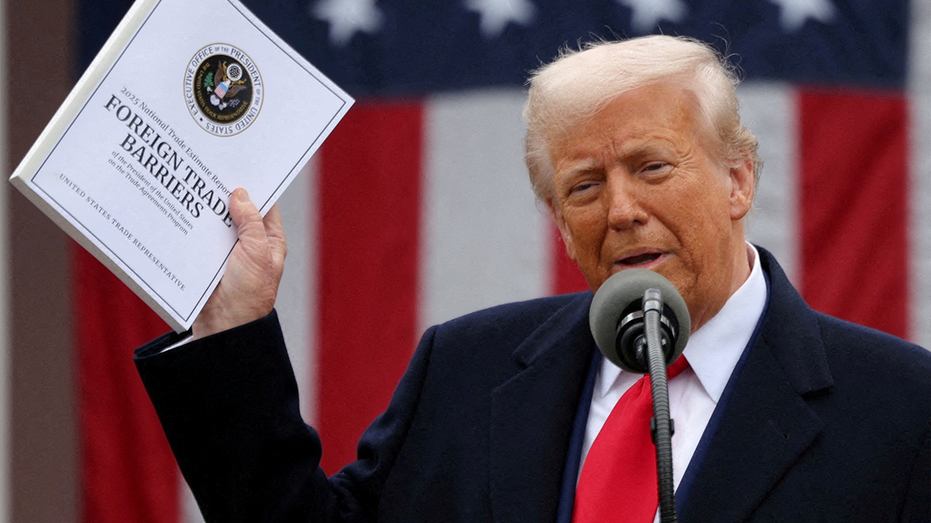Tariff Dispute Escalates as Trump Appeals Second Court Loss in Ongoing Trade Battle
Legal showdown heats up as the Biden administration appeals court rulings challenging Trump's tariffs and the expanded use of IEEPA.

The Trump administration is intensifying its legal battle to preserve President Donald Trump's sweeping tariff regime, a cornerstone of his second-term economic agenda. On Monday, government lawyers filed an urgent appeal with the U.S. Court of Appeals for the D.C. Circuit, seeking to halt the enforcement of a district court decision that struck down the administration’s use of the International Emergency Economic Powers Act (IEEPA) to impose broad tariffs on U.S. trading partners.
This latest legal maneuver comes on the heels of a pivotal week in which multiple federal courts weighed in on the reach of presidential power over trade. Last week, a three-judge panel at the U.S. Court of International Trade unanimously ruled that the IEEPA does not grant the president "unbounded" authority to implement tariffs, directly challenging the legal underpinnings of Trump’s so-called "Liberation Day" tariff plan. However, that ruling was quickly put on hold by an appeals court, keeping the tariffs in place—at least temporarily—while litigation proceeds.
In a parallel but lesser-known development, U.S. District Judge Rudolph Contreras issued a separate ruling also finding Trump’s tariffs unlawful under the emergency powers statute. While Contreras’ decision initially received limited attention due to its narrow focus on two small business plaintiffs rather than the sweeping national policy, it has since become a critical battleground in the broader fight over presidential tariff authority.
In their appeal to the D.C. Circuit, Justice Department attorneys argued that invalidating the tariffs would severely handicap the White House’s ability to use them as leverage in ongoing trade negotiations. "By holding the tariffs invalid, the district court’s ruling usurps the President’s authority and threatens to disrupt sensitive, ongoing negotiations with virtually every trading partner by undercutting the premise of those negotiations—that the tariffs are a credible threat," the administration’s lawyers asserted in their filing. They emphasized that talks with key countries stand at a "delicate juncture," making the legal uncertainty especially consequential.
Economists have echoed the administration’s argument that the tariffs—especially the so-called "reciprocal" levies targeting countries believed to impose higher tariffs on U.S. exports—are better understood as negotiating tactics rather than settled policy. William Cline, a senior fellow emeritus at a prominent economic think tank, explained that the administration’s ultimate goal has always been to use the threat of tariffs to bring trading partners to the bargaining table. "They need to get back to a place where they are using these huge reciprocal tariffs as a negotiating tactic," Cline noted, citing previous statements from Treasury officials who framed the tariffs as leverage in forthcoming talks, including those with China.
Still, not all experts are convinced the strategy will deliver the economic benefits that Trump and his allies promise. "Trump and Vance have this view that tariffs are beautiful because they will restore America's Rust Belt jobs and that they'll collect money while they're doing it, which will contribute to fiscal growth," said Cline, who also served as chief economist for the Institute of International Finance. "Those are both fantasies," he added, warning that the economic evidence simply does not support such claims.
What happens next remains uncertain. The White House has signaled its willingness to take the tariff case all the way to the Supreme Court if necessary, underscoring the high stakes involved. However, legal experts caution that it is far from clear whether the Supreme Court will agree to hear the matter, particularly as tensions between the Trump administration and the judiciary continue to mount. In a telling sign of the urgency and breadth of the administration’s legal woes, Trump’s lawyers have already filed 18 emergency appeals to the high court in just the first 20 weeks of his second term.
As both sides await further judicial action, the outcome of this high-profile legal fight could have far-reaching implications not only for U.S. trade policy but also for the limits of presidential authority during times of economic uncertainty. All eyes now turn to the appellate courts—and potentially the Supreme Court—in what promises to be a defining test of executive power in the modern era.




